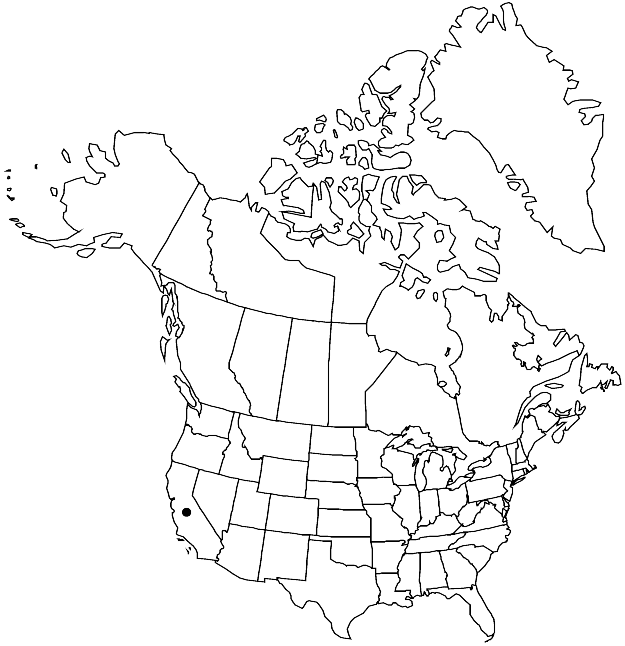Streptanthus batrachopus
Madroño 4: 204, plate 31, figs. 20–28. 1938.
Annuals; (glaucous), glabrous throughout. Stems unbranched or branched basally, 0.3–1.7(–2.8) dm. Basal leaves (soon withered); not rosulate; shortly petiolate; blade (succulent, mottled), obovate to oblanceolate, 0.5–2 cm, margins coarsely dentate. Cauline leaves: blade lanceolate, 0.5–2.5 cm × 1–7 mm (smaller distally), base auriculate, margins entire or dentate (entire distally). Racemes ebracteate (lax, sometimes secund). Fruiting pedicels divaricate-ascending, 1–2.5(–4) mm. Flowers: calyx urceolate; sepals (erect) reddish purple, (ovate), 3–5 mm, keeled, (apex spreading); petals whitish (abaxial pair with purplish veins, adaxial pair purple), 5–8 mm, blade 2–3 × 1–1.5 mm, margins not crisped, claw 3–4 mm; stamens in 3 unequal pairs; filaments: abaxial pair (connate to middle), 3–4 mm, lateral pair 1.5–2.5 mm, adaxial pair (completely connate, not recurved), 5–6 mm; anthers: abaxial and lateral pairs fertile, 1.4–1.7 mm, adaxial pairs sterile, 0.3–0.5 mm; gynophore 0.3–0.7 mm. Fruits divaricate-ascending, slightly torulose, straight to slightly curved, slightly flattened, 1.3–3 cm × 1–1.5 mm; valves each with obscure midvein; replum straight; ovules 12–22 per ovary; style 0.2–0.8 mm; stigma entire. Seeds oblong, 1.3–2 × 0.8–1.2 mm; wing 0.1–0.3 mm wide distally, (narrower at margin, rarely absent). 2n = 28.
Phenology: Flowering May–Jun.
Habitat: Serpentine barrens and outcrops in chaparral
Elevation: 100-600 m
Discussion
Of conservation concern.
Streptanthus batrachopus is known from Mt. Tamalpais, Marin County.
Selected References
None.
